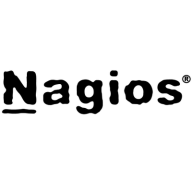

Nagios Core and DX NetOps are competitors in the IT monitoring and performance management software category. Nagios Core appears to have an edge in flexibility and cost, making it suitable for highly customized integrations. DX NetOps may offer advantages in ease of setup and comprehensive features, delivering more straightforward solutions for network performance management.
Features: Nagios Core offers extensive customization and flexibility, allowing integration with diverse systems. Its open-source nature ensures compatibility with a wide range of endpoints. This software provides robust monitoring capabilities while maintaining resource efficiency. DX NetOps provides advanced performance management features for comprehensive monitoring. Its ease of setup is complemented by built-in configuration management, making deployment straightforward. The tool supports comprehensive resource allocation monitoring, aiding efficient network operations.
Room for Improvement: Nagios Core faces a complex setup process requiring high-level system administration skills, leading to potential errors. The absence of dynamic operations necessitates frequent restarts when adding devices, which could be improved. DX NetOps could enhance native automation to minimize manual interventions, reducing risk. Both products could improve their user interfaces for better usability and broaden integration capabilities.
Ease of Deployment and Customer Service: Nagios Core is versatile in deployment, supporting on-premises and hybrid cloud environments but requires significant user expertise. Customer service relies heavily on community-driven support through forums. DX NetOps focuses on on-premises deployments, offering more integrated setups. Its paid licensing model includes customer service, providing robust support.
Pricing and ROI: Nagios Core is an affordable monitoring solution with its open-source model, eliminating licensing fees and reducing total cost of ownership. Costs are mainly attributed to server maintenance, and support is community-based. DX NetOps adopts a subscription licensing model that includes comprehensive customer support and integrated features. Though initially more expensive, it may deliver significant long-term financial benefits through thorough network monitoring and effective resource management.
It can save you the cost of the product by reducing expenses and downtimes in 12 to 18 months.
They are fast, responsive, and have technical expertise.
The product is very scalable, to the maximum.
The solution is scalable.
I rate the stability of the product as ten on a scale of one to ten, indicating that it is very stable.
I tried many other solutions at work, however, in terms of Nagios, I haven't seen any disruption or downtime.
DX NetOps is somewhat convoluted, and some of the programming constructs can be documented or driven through languages such as Python, Perl, and shell scripting, but they have their proprietary language, which may not be very user-friendly.
It would be useful to have more AI features.
I think the pricing is expensive.
The licensing cost of DX NetOps is expensive, not very affordable, and on the top of the price range in the market.
The product features include automation through AI, allowing out-of-the-box analysis of performance data, building baseline trends, and enabling configuration of dynamic thresholds relative to collected data.
The best features I've seen so far with DX NetOps are that it can work with large scale systems, and it has a lot of functionalities and matrices.
It has a very handy dashboard, providing live alerts and visibility for everything.
| Product | Market Share (%) |
|---|---|
| Nagios Core | 2.5% |
| DX NetOps | 0.6% |
| Other | 96.9% |


| Company Size | Count |
|---|---|
| Small Business | 4 |
| Midsize Enterprise | 1 |
| Large Enterprise | 3 |
| Company Size | Count |
|---|---|
| Small Business | 20 |
| Midsize Enterprise | 11 |
| Large Enterprise | 22 |
DX NetOps by CA Technologies, a Broadcom company, improves your time to value through advanced AI capabilities and unified network visibility that delivers simplified NetOps intelligence into the user experience that traverses modern architectures. DX NetOps accomplishes this through high scale, unified network monitoring that enables full-stack analytics for assuring traditional and modern architectures. DX NetOps converts inventory, topology, device metrics, faults, flow and packet analysis into actionable intelligence for network operations teams. Complimented by our AIOps solution, DX NetOps enables IT teams to establish proactive, autonomous remediation capabilities across the applications, infrastructure, and networks that fuel superior user experiences.
This is IT infrastructure monitoring's industry-standard, open-source core. Free without professional support services.
We monitor all Network Monitoring Software reviews to prevent fraudulent reviews and keep review quality high. We do not post reviews by company employees or direct competitors. We validate each review for authenticity via cross-reference with LinkedIn, and personal follow-up with the reviewer when necessary.